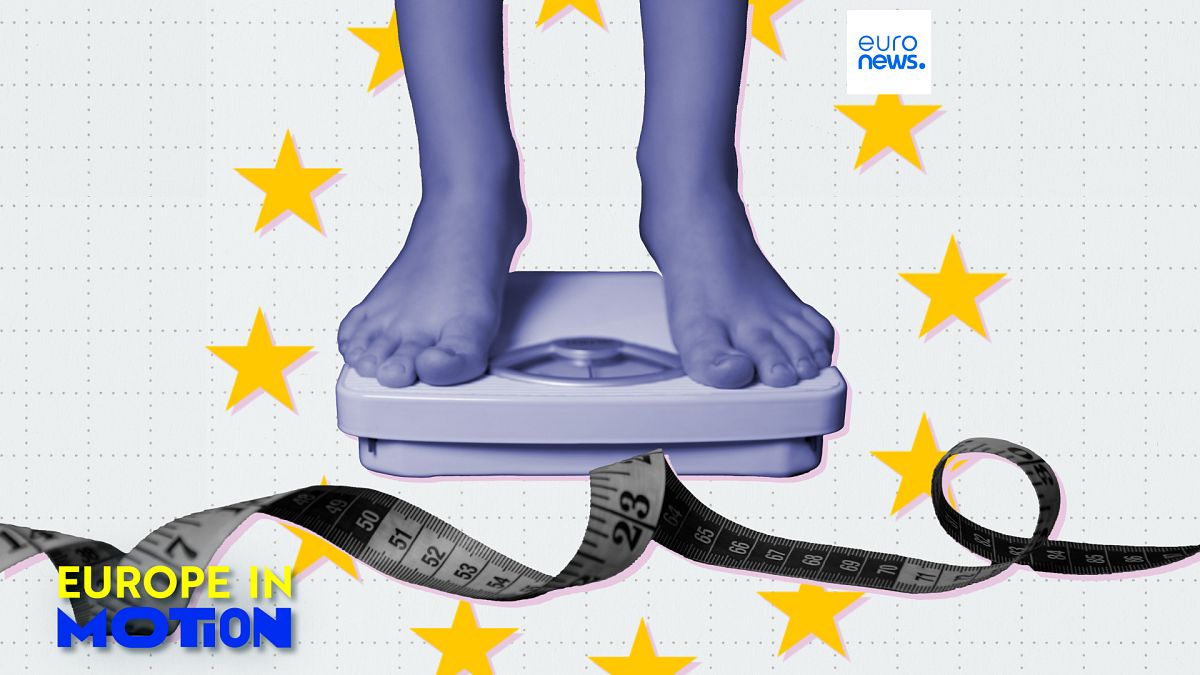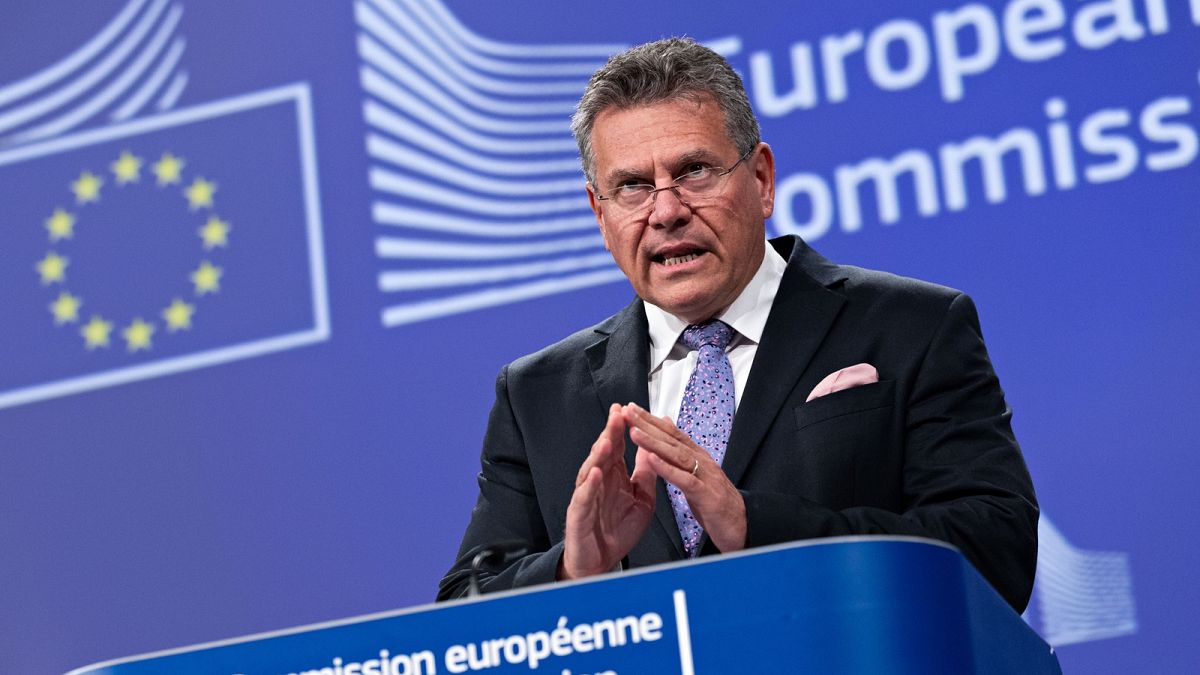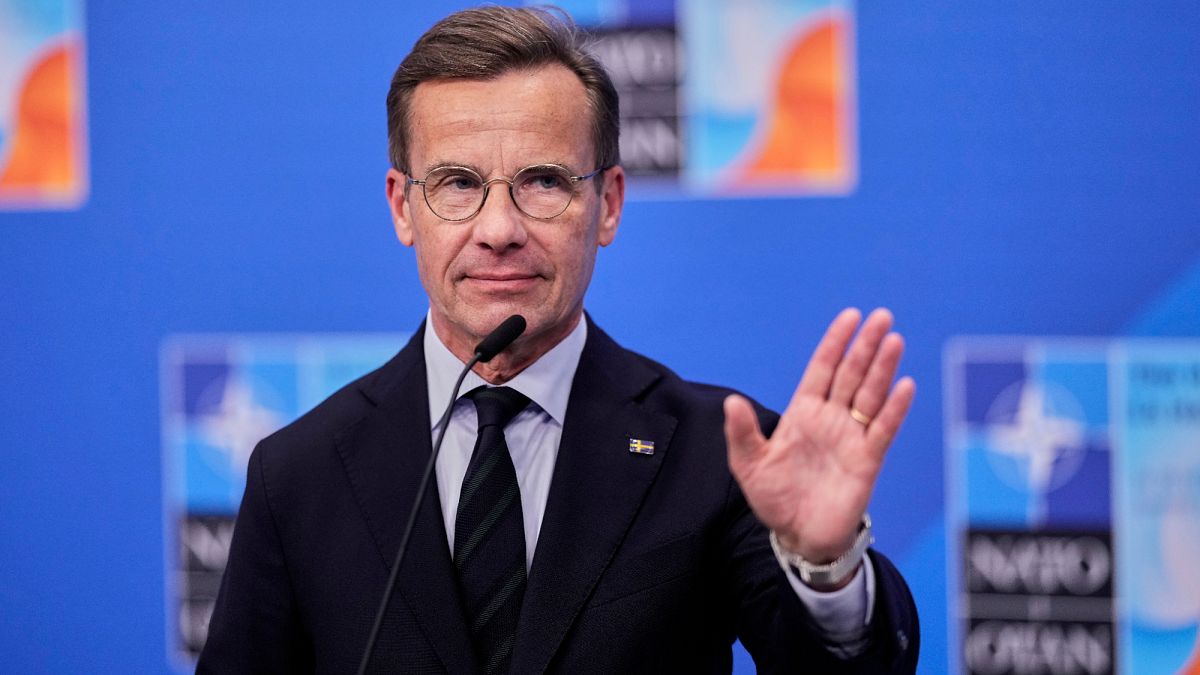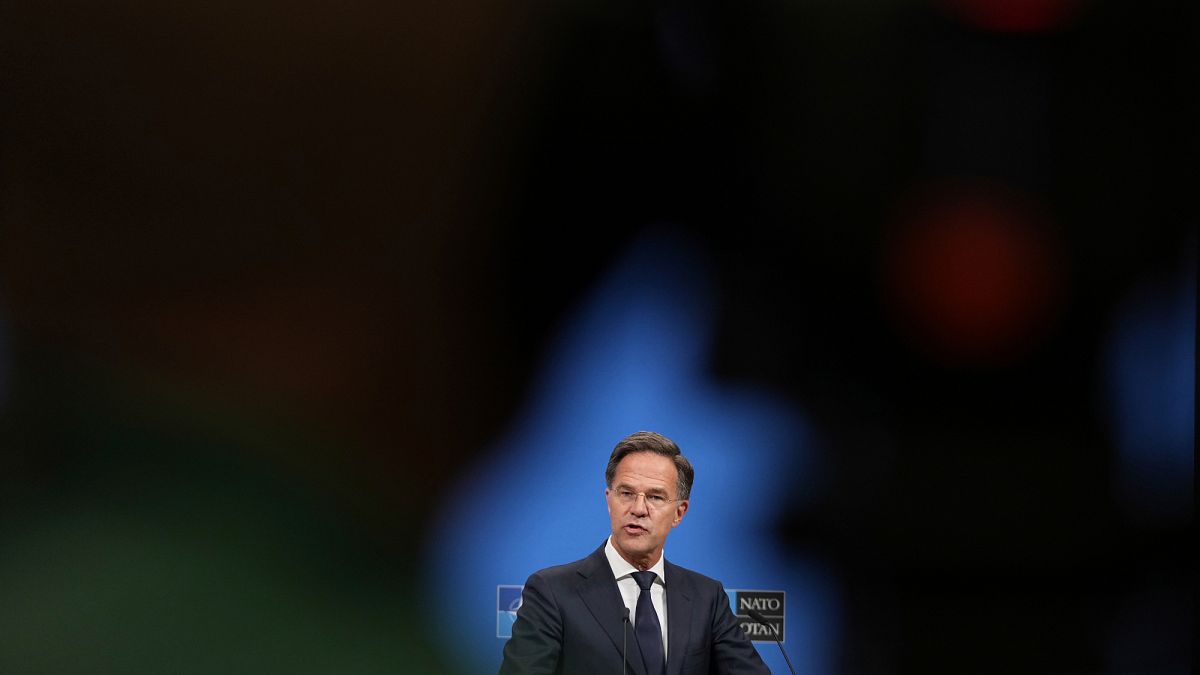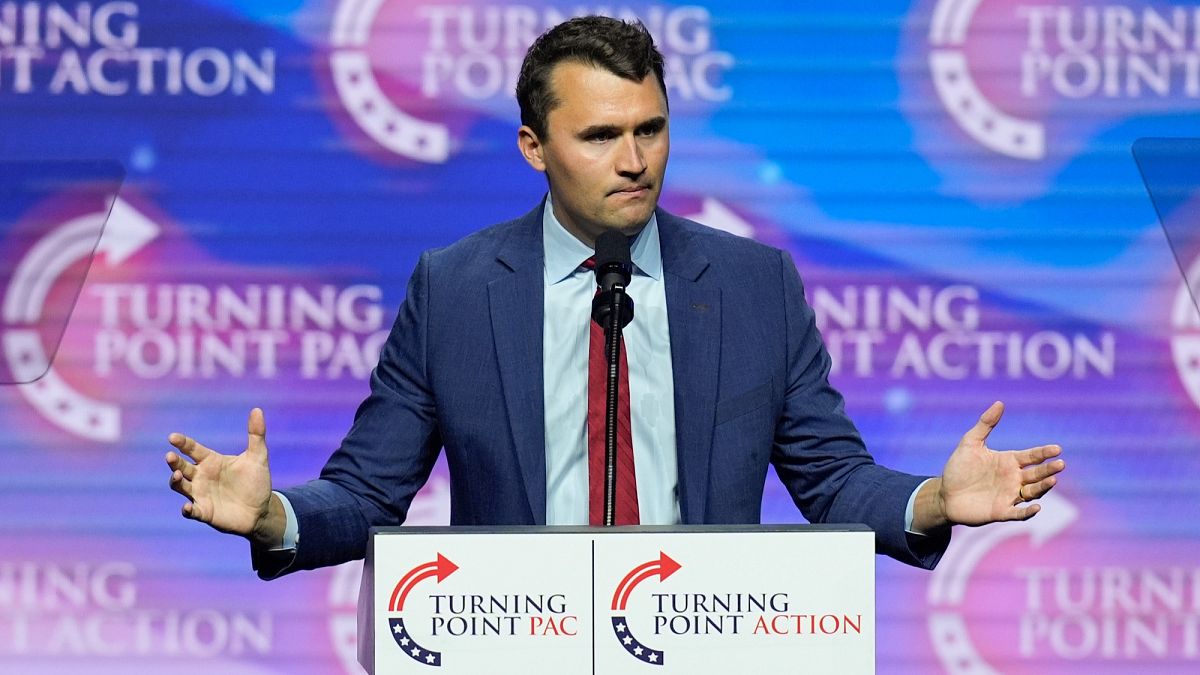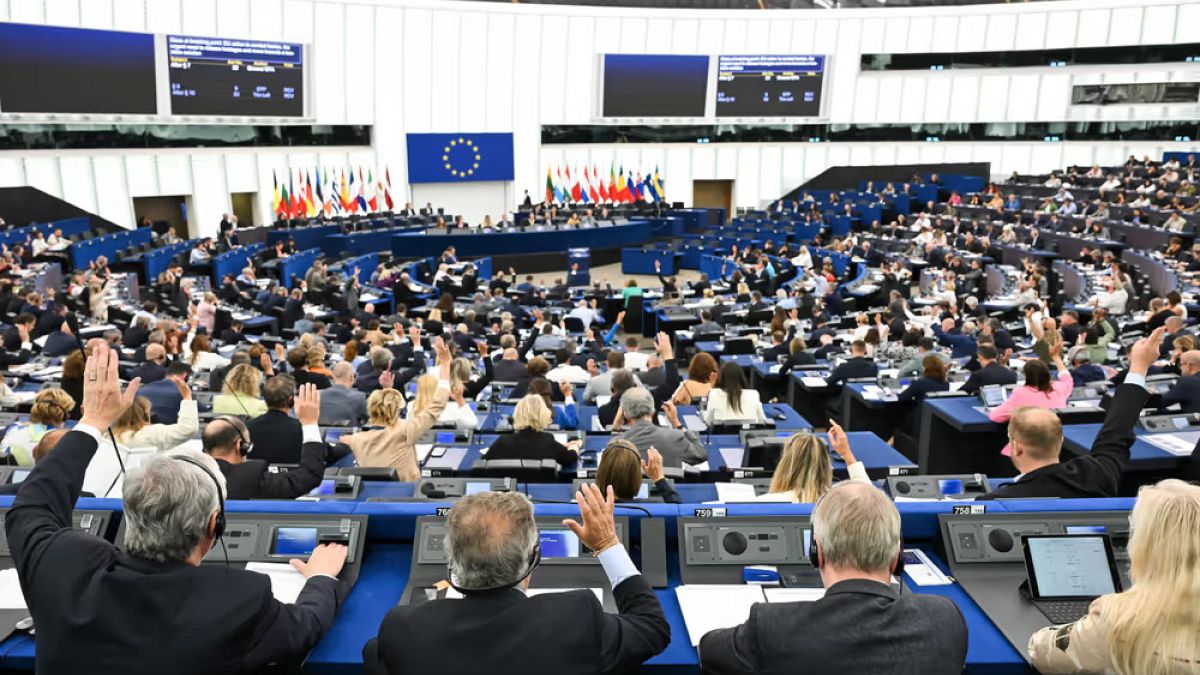ADVERTISEMENT
The European Commission is scrambling to defend the trade deal struck by Ursula von der Leyen and Donald Trump amid mounting criticism over its lopsided nature, arguing the tentative compromise represents the most realistic chance to avert a havoc-wreaking tariff war between the two sides of the Atlantic.
“This is clearly the best deal we could get under very difficult circumstances,” Maroš Šefčovič, the European Commissioner for Trade, said at a press conference on Monday.
The announced deal foresees the introduction of an across-the-board 15% tariff for EU products bound for the US market. At the same time, the majority of US products bound for the EU market will benefit from a zero or virtually zero tariff. Sensitive agricultural goods, such as beef, poultry and sugar, were excluded from the agreement.
The 15% rate is lower than the 30% rate that Trump threatened to slap on the bloc in a letter sent to von der Leyen earlier this month. It is also below the 20% rate that he originally announced in April as part of his controversial “reciprocal tariffs”.
However, it is significantly higher than the average 4.8% rate that EU exports faced upon entering US soil before Trump’s return to the White House.
According to Šefčovič, who sat next to von der Leyen during Sunday’s make-or-break meeting, Trump kicked off the negotiations by putting the 30% again on the table. This led to a back-and-forth between the two sides until they settled for the 15% mark, applicable as “all inclusive” to block the accumulation of additional duties.
Trump’s 30% tariff, Šefčovič said, would have effectively halted transatlantic trade and created an “unbearable” situation with “much worse conditions” for the talks.
“It’s quite obvious that the world which was there before 2 April is gone. And we simply need to adjust, we need to address the challenges which are coming from this new approach,” the Commissioner said. “And I believe that the strategic cooperation with our strategic partner is a better outcome than an all-out trade war.”
‘Between the plague and cholera’
The Commission’s version of events has so far failed to quell the simmering discontent.
The stark difference between the 15% rate imposed on most EU goods and the 0% rate enjoyed by most US goods has fuelled the impression of an asymmetrical arrangement that exclusively favours Trump’s interests to the detriment of the bloc’s.
The pledges to spend $700 billion in US energy and invest $600 billion in the US economy until the remainder of Trump’s second term have only deepened the impression of a win-lose deal. (The pledges are indicative, not legally binding.)
Bernd Lange, a German MEP who chairs the European Parliament’s trade committee and is in regular contact with Šefčovič, left no doubt as to his displeasure.
“My first assessment: not satisfactory. This is a lopsided deal. Concessions have clearly been made that are difficult to accept,” Lange said on social media.
Kathleen Van Brempt, who serves as one of the committee’s vice-chairs, was more scathing, warning the deal would make the bloc more “dependent” on American fuels and ultimately “backfire” against its stated goal of strategic autonomy.
“The fundamental problem remains that Trump’s tariffs are illegal and violate virtually every existing trade rule,” Van Brempt wrote in a statement. “Simply accepting that European products will be subject to a 15% import tariff (…) means that we are essentially agreeing to these illegal, coercive tariffs.
“Avoiding a heavier 30% tariff will undoubtedly be a relief,” she added. “But this remains a choice between the plague and cholera.”
Decrying a “heavy price” paid, Valérie Hayer, the president of the liberal Renew Europe group, said the agreed terms would lead to a “massive imbalance” between the two sides, and Terry Reintke, co-chair of the Greens, slammed the Commission for caving into “the bullying tactics and threats of President Trump”.
“This is not the way to do business,” Reintke said.
Even von der Leyen’s party, the centre-right European People’s Party (EPP), was unhappy with the outcome, calling the 15% a “blatant breach of WTO principles and a serious blow to European industrial competitiveness”.
‘A dark day’
EU leaders were noticeably lukewarm in their initial reactions, welcoming the deal as an anchor of “stability” but lamenting the continuation of the punitive duties.
“This is a moment of relief but not of celebration. Tariffs will increase in several areas, and some key questions remain unresolved,” said Belgian Prime Minister Bart de Wever.
His Dutch counterpart, Dick Schoof, said that “no tariffs would have been better”, while Ireland’s Micheál Martin, whose country strongly relies on the US market, predicted trade would become “more expensive” and “more challenging”.
Spain’s Pedro Sánchez was visibly apathetic. “In any case, I support this trade agreement, but I do so without any kind of enthusiasm,” he said.
In France, the prime minister described the agreement as a “dark day” of “submission”.
The remarks expose the feeling of despondency and frustration that has gripped the EU since the start of Trump’s second term. The Republican has single-handedly bulldozed over decades of transatlantic principles to promote his “America First” agenda, breaking with the Western consensus on trade, technology, climate and defence.
In his press conference, Šefčovič said geopolitics had played a role in the Commission’s balancing act ahead of the face-to-face meeting in Scotland.
“It’s not only about the trade. It’s about security. It is about Ukraine. It is about current geopolitical volatility,” he said. “I believe from now on, we can go only for the better.”
Privately, Commission officials concede the 15% rate is “not great” and hope Washington will treat the tariff as a maximum ceiling to prevent escalation down the road. But Peter Chase, a senior fellow at the German Marshall Fund, says Brussels should do better than take things for granted, given Trump’s notoriously mercurial character.
“Unfortunately,” Chase said, “President von der Leyen and others who believe the EU’s concessions bought stability for European businesses may unfortunately find that the man who shredded US commitments under international law to create ‘leverage’ is very likely to rip up this agreement too.”




